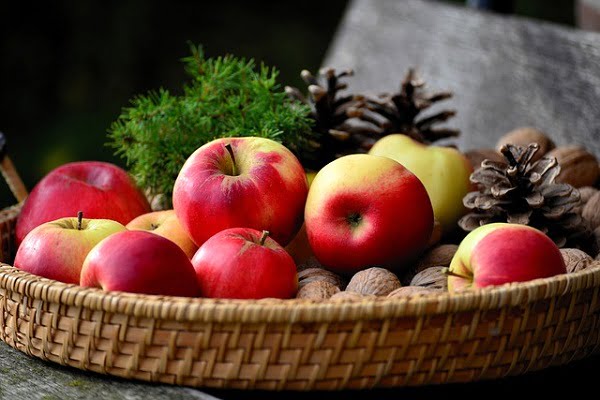Healthy Diet to Prevent Irritable Bowel Syndrome (IBS)
- Updated on: Jul 15, 2024
- 6 min Read
- Published on Oct 4, 2019


Foods to avoid with irritable bowel syndrome
Patients with irritable bowel syndrome should strictly monitor their diet, as certain foods can trigger IBS symptoms. Each individual is different, so there are different foods which can affect an IBS patient differently.
Doctors recommend a low FODMAP diet for IBS patients to maintain the frequency and severity of their symptoms. You can consult a dietician to help you decide a specialized low FODMAP diet, which can improve your symptoms gradually.
Following is the list of IBS foods to avoid when you are on a low FODMAP diet:
- Apples
- Baked beans
- Carbonated drinks
- Chickpeas
- Coleslaw
- Lentils
- Pears
- Sauerkraut
- Soybeans
- Watermelon
These foods act as a major trigger for most IBS patients. You can maintain a food dairy or journal which can help you identity foods which trigger IBS symptoms upon their consumption. You can note down all the food items you consume in a day and the symptoms you experience following its digestion. Continue this activity for a few days for various food items.
This way you can identify certain foods which act as IBS triggers for you and avoid them in your diet. It is also helpful in maintaining a healthy and balanced IBS diet plan.
Some common foods to avoid with IBS include:
Insoluble Fiber
Insoluble fiber adds bulk to your stool and helps in relieving constipation. Some common insoluble fibers include fruits, whole grains and vegetables. In some patients, they can cause gas and bloating. Such individuals should consume soluble fibers rather than insoluble fibers. Foods rich in soluble fiber include carrots, parsnips, oatmeal, barley, berries, oranges, mangos, grapefruit and peas.
Gluten
Certain whole grains such as barley, wheat and rye contain gluten, which can aggravate your IBS symptoms.
Gluten is a protein molecule, which can be sensitive to some people. They may be allergic to gluten, leading to a disease known as celiac disease. It has symptoms similar to diarrhea, which is a predominant form of irritable bowel syndrome.
People suffering from IBS can also experience gluten intolerance. In some patients, IBS symptoms may worsen due to gluten sensitivity, which can be improved by intake of a gluten-free diet. Today, many food items are available in gluten-free form, such as bread, pasta, chips etc.
Dairy
Dairy products can be harmful for 2 major reasons:
- They contain fat, which can lead to diarrhea in IBS patients. They can be replaced by intake of low-fat or non-fat dairy products, which are easily available in market.
- Some IBS patients are also lactose intolerant. Lactose is one of the important constituents of dairy products. Presently, lactose deficient dairy products are available in the market such as rice milk and soy cheese. These products can fulfill the nutrient requirement of the patient, without producing any troubling symptoms.
If these alternative products are not helpful, you can completely avoid dairy products. But, in such a situation, you should consult your doctor for a calcium supplement.
Fried Foods
Fried foods are considered as a stable food for people living in the United States. They are extremely harmful for IBS patients.
When we fry a particular food, its chemical composition changes and as a result make it difficult to digest. It also increases the fat content in the food, further causing trouble for patients. Instead of frying the food, you can try grilling or baking it.
Beans and Legumes
Beans and legumes are a good source of protein and fiber. It adds bulk to your stool and helps in relieving constipation. But in some IBS patients, it causes gas, bloating and diarrhea. If such a situation occurs, you can remove these foods from your IBS diet plan.
Caffeinated Drinks
For some people, morning coffee and tea help in the digestion. But caffeinated products such as coffee, sodas and certain energy drinks, affect the digestive tract and can lead to diarrhea. Therefore, these drinks act as one of the major IBS trigger foods. IBS patients can replace caffeinated drinks with a small meal or a quick walk, to get an energy boost.
Processed Foods
Processed foods contain certain chemical constituents such as additives and preservatives. These substances make processed foods as triggers for irritable bowel syndrome patients and flare-up their symptoms.
Many processed foods are either frozen or need to be fried before consuming, which thereby increases their fat content and may alleviate troubling symptoms in IBS patients. You can replace processed foods with freshly prepared or home-made food.
Sugar-free Sweeteners
Sugar-free sweeteners can be a good alternative for weight control. But they are extremely harmful for IBS patients. They are generally known as sugar alcohols, artificial sweeteners, polyols or sugar substituent.
Sugar-free sweeteners contain sucralose, acesulfame potassium and aspartame. They are commonly found in sugar-free candy, gum, most diet drinks and mouthwash. These substances are difficult to digest if you suffer from irritable bowel syndrome. You should check the label before you buy any such products.
Chocolate
Chocolate containing foods such as chocolate bars and candies are rich in caffeine and large amount of sugar. They can cause severe constipation in IBS patients. You can try replacing chocolate products with a more vegan option, to tolerate its side effects.
Alcohol
Alcoholic beverages are also considered one of the chief IBS trigger foods, because they are difficult to digest. Beer contains gluten and wine and mixed drinks contain large amount of sugar, which are harmful for IBS patients. Alcohol also has the capability to dehydrate your body and affect liver function and digestion of food.
It can be one of the IBS foods to avoid completely or you can drink a gluten-free beer or a drink mixed with plain seltzer. You can avoid adding artificial sweeteners or sugar in your drink.
Garlic and Onions
Garlic and onions are the major flavoring agents in your food. But for some IBS patients, they can cause digestive troubles, leading to painful gas and cramping. They can be difficult to digest when consumed in raw or cooked form. The best way is to avoid garlic and onion in your dishes.
Broccoli and Cauliflower
Broccoli and cauliflower are also considered as IBS trigger foods, as they are difficult to digest. Upon digestion they may cause gas and constipation, even in people who do not suffer from irritable bowel syndrome.
You can try grating the heads of these vegetables, also known as ricing. This can make the digestion process much easier. But it still has the risk of causing gas and bloating in IBS patients.
Avoid IBS Trigger Foods in Restaurants
People with IBS face a lot of problem while going to a restaurant and are afraid of hidden triggers present in various dishes. You should carefully study the menu and request for certain substitutions which can prevent flare-up of IBS symptoms.
Certain tricks you can try while eating in a restaurant are as follows:
Study the menu
Before visiting a restaurant, you can check its menu to identify foods which are safe for your consumption. If you cannot find any suitable dish, try looking for another restaurant where can eat comfortably.
Lactose-free or Gluten-free Menu
Lactose and gluten are major nutrients which can trigger IBS symptoms. By asking for lactose-free or gluten-free menu, you can easily prevent occurrence of troubling symptoms and eat safely.
Base of soup
By asking for the base of soup in a restaurant, you can prevent consumption of certain IBS trigger foods. Example: If the base of the soup is cream, which indicates presence of lactose, it can be avoided. Rather you can eat certain broth-based soups to inhibit alleviation of symptoms.
Check for vegetables
You should study the menu carefully to check the list of vegetables present in a dish. This way you can avoid certain dishes containing IBS triggering vegetables.
Ask for the ingredients added
You should also check for ingredients which need to be avoided in IBS. For example, in hamburgers you should check for presence of breadcrumbs or onions, which can worsen your IBS symptoms.
Order grilled food instead of fried food
Fried food contains large amount of fat which can make your stomach upset, so try replacing fried foods with grilled dishes.
Avoid salad dressing or sauce
You can carry some of your own salad dressing in a small container to avoid potential triggers in sauce and salad dressing, as they contain additives. For example, a gluten-free balsamic dressing or some low-FODMAP veggies can perfectly go with grilled chicken or steak.
Swap for Certain IBS Triggering Foods
Irritable bowel syndrome creates a major effect in the life of a patient. He/she has to avoid certain foods in his/her diet. This can make them deficient of certain essential nutrients.
Dieticians have found certain easy replacements for some of the IBS foods which need to be avoided by patients. These are as follows:
- You can eat some of the low FODMAP fruits, such as bananas, cantaloupe, blueberries, grapes, kiwis, oranges and strawberries.
- You can eat some of the low-FODMAP vegetables, such as carrots, green beans, eggplant, spinach, sweet potatoes and squash.
- You can maintain your calcium levels by eating yogurt, rather than consuming lactose-containing dairy products. Research had indicated that certain good bacteria present in yogurt helps in fighting IBS symptoms.
- You should try substituting butter with olive oil in your recipes. You can ideally replace three-quarters of butter in a recipe with olive oil.
- You can take lactose-free milk substituents such as soy milk, rice, oat and almond milk.
- You should limit the consumption of artificial sweeteners, as they disrupt your intestinal microbiome and alleviate your symptoms. You can replace such products with maple syrup or stevia.
Sometimes, it is difficult to completely remove certain IBS triggers from your food, so by reducing their amounts, a significant difference can be created in your health.












